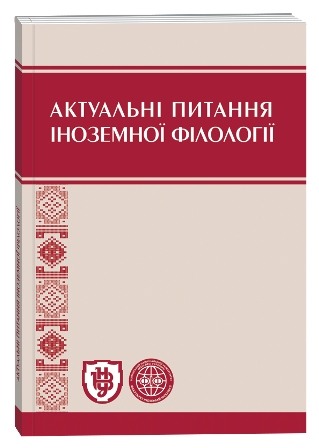ТЕОРЕТИЧНІ ПЕРЕДУМОВИ СТВОРЕННЯ ТА УМОВИ ВИКОРИСТАННЯ МОДУЛЬНОЇ ТЕХНОЛОГІЇ ІНШОМОВНОЇ ПІДГОТОВКИ СТУДЕНТІВ ТЕХНІЧНОГО ВУЗУ
DOI:
https://doi.org/10.32782/2410-0927-2021-15-19Ключові слова:
глобалізація, інтеграція, академічна мобільність, науково-технічна інформація, міжкультурна комунікація, модульне навчання, Болонський процес, гуманітаризація, особистісно-орієнтоване навчання, самостійна робота, комунікативна задача, навчальний матеріал, комунікативна діяльністьАнотація
У сучасних умовах розширення міжнародних зв’язків, науково-технічного співробітництва, можливостей стажування за кордоном, роботи з технічною документацією іноземною мовою потрібен високий рівень іншомовної підготовки студентів, які навчаються у технічних ВНЗ. Іншомовна комунікативна компетентність стає невід’ємною частиною загальної професійної компетентності студентів технічного ВНЗ та надає можливість майбутнім випускникам виходити на міжнародний рівень спілкування з фахівцями з інших країн. Існують різні технології, що використовуються при іншомовній підготовці студентів, однак особливої уваги заслуговує модульна технологія, що дозволяє представити все навчання у вигляді сукупності окремих змістовних блоків із конкретними компетенціями, організаційними формами. Мета статті є огляд та аналіз теоретичних передумов створення та умов використання модульної технології іншомовної підготовки студентів технічного ВНЗ. Методологічну та загально теоретичну основу дослідження склали вітчизняні та зарубіжні теорії, концепції, що відображають сучасні педагогічні та психологічні теорії професійної освіти, наукові праці вітчизняних та зарубіжних авторів щодо навчання іноземних мов, проблеми іншомовної підготовки студентів вищих навчальних закладів, в яких розкриваються: ідеї філософії, професійної діяльності, основи психологічної теорії діяльності та методологічні підходи до організації освітнього процесу. Теоретична значущість статті полягає в наступному: уточнено поняття «іншомовна комунікативна компетентність» з погляду її структури та змісту; обґрунтовано, що модель модульної технології іншомовної підготовки студентів технічного вузу розвиває ідеї компетентнісно-орієнтованої освіти, дозволяє проектувати цілі, зміст, технології, що забезпечують якісно нову іншомовну підготовку, адекватну сучасним вимогам суспільства. Вищевикладене дозволяє зробити висновок про те, що технологія модульного навчання – це не просто педагогічна технологія, що застосовується при навчанні студентів іноземної мови, а необхідна умова оволодіння іншомовною культурою через створення сприятливих умов для розвитку майбутніх інженерів як культурно-мовних осіб, які володіють високорозвиненими комунікативно-культурними вміннями під час вирішення комунікативних завдань.
Посилання
Бородина Н. В., Самойлова Е. С. Модульные технологии в профессиональном образовании. Екатеринбург, 1997.
Крошэ Э. Руководство по модульной системе профессионально-технического обучения. Женева, 1996.
Чошанов М. А. Гибкая технология проблемно-модульного обучения. М. : Нар. образование, 1996.
Шевелева Н. Л. Модульное обучение в системе дополнительного профессионального образования инженерно-педагогических кадров : автореф. дис. … канд. пед. наук. Екатеринбург, 1998.
Юцявичене П. А. Теория и практика модульного обучения. Каунас : Швиеса, 1989.
Engineering Technician Standard. Engineering Council. – UK, London, 2005. – 14 p.
Harmer J. How to teach English: An introduction to the practice of English language teaching. Edinburgh : Longman, 2001. 198 p.
Hutchinson T. English for specific purposes A learning-centered approach / T. Hutchinson, A. Waters. – Cambridge : Cambridge University Press, 1998. – 183 p.
Richards Jack C., Rodgers Theodore S. Approaches and Methods in Language Teaching (3rd ed.) / Jack C. Richards, Theodore S. Rodgers. – Cambridge, New York : Cambridge University Press, 2014. – 411 p.
Strawson Hannah. 53 Interesting Ways of Helping Your Students to Study the Professional and Higher Partnership, 2012. 192 p.







